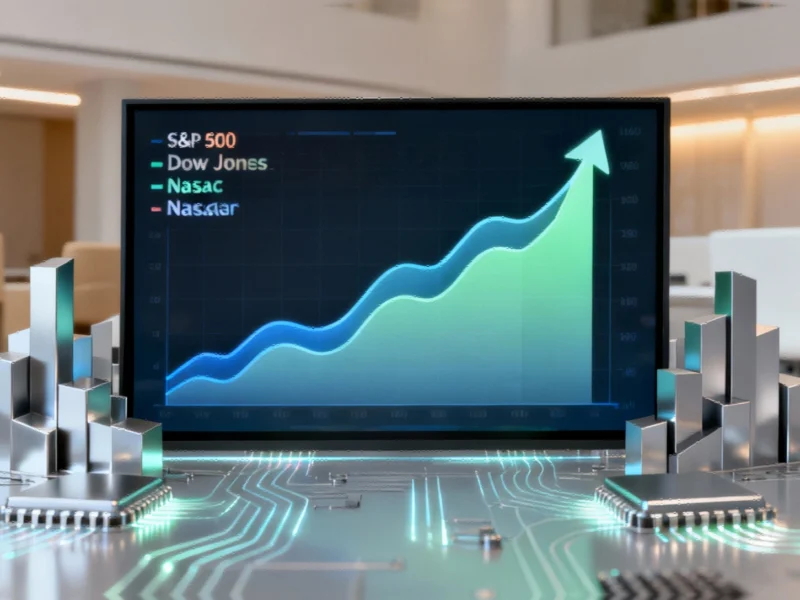The Geopolitical Wake-Up Call for European Business
The Dutch government’s recent intervention to seize control of Nexperia from Chinese ownership represents more than just another political maneuver in the global chip wars. It serves as a stark warning to European corporations that have long operated under the assumption that geopolitics belongs in government chambers rather than boardrooms. For decades, European businesses benefited from stable trade relationships and relatively predictable markets, but this era of complacency is ending abruptly.
Table of Contents
While governments are increasingly willing to intervene in strategic sectors, relying solely on political protection constitutes a dangerous strategy. The Nexperia case demonstrates that when governments act, it’s often as a last resort—after vulnerabilities have already been exploited. European companies must now develop their own sophisticated approaches to geopolitical risk assessment or face being outmaneuvered in an increasingly contested global landscape., as earlier coverage
The Semiconductor Precedent: Beyond Just Chips
The 2021 global chip shortage provided a painful lesson in supply chain fragility, but semiconductors represent just one visible symptom of a much broader vulnerability. China currently controls approximately 80% of global battery production capacity and has demonstrated willingness to weaponize export controls on critical minerals. The recent restrictions on graphite exports—a vital component for electric vehicle batteries—signals Beijing’s readiness to leverage economic dependencies for strategic advantage., according to industry developments
European automakers, renewable energy companies, and consumer electronics manufacturers now face the reality that their transition to green technologies depends heavily on supply chains concentrated in geopolitically sensitive regions. Unlike the semiconductor shortage, which primarily affected automotive production, disruptions in battery or critical mineral supply could paralyze multiple strategic sectors simultaneously.
Maritime and Infrastructure Vulnerabilities
Beyond supply chain dependencies, Europe faces growing physical vulnerabilities in its trade and energy infrastructure. The repeated attacks on Baltic Sea pipelines and underwater cables have exposed critical weaknesses in subsea infrastructure protection. Meanwhile, tensions in the Red Sea have forced shipping companies to reroute vessels around Africa, adding significant costs and delays to global trade.
These developments highlight that Europe’s economic security extends far beyond factory walls or corporate balance sheets. The physical pathways that enable global commerce—shipping lanes, data cables, energy pipelines—have become contested spaces where geopolitical conflicts play out with direct commercial consequences.
From Reactive to Proactive: A New Corporate Mandate
European companies can no longer afford to treat geopolitics as someone else’s responsibility. The most forward-thinking organizations are already implementing comprehensive strategies that include:
- Supply chain diversification beyond geopolitically sensitive regions
- Strategic stockpiling of critical components and materials
- Enhanced scenario planning for multiple geopolitical contingencies
- Direct investment in securing physical infrastructure and transport routes
- Cross-industry collaboration to address systemic vulnerabilities
The Dutch government’s Nexperia intervention should be viewed not as a solution but as a symptom of the broader challenge. Companies that wait for government protection will inevitably find themselves reacting to crises rather than preventing them. In the new era of geopolitical competition, corporate leadership requires not just business acumen but strategic foresight and the courage to make difficult decisions before circumstances force them.
The Competitive Imperative
This shift toward geopolitical awareness isn’t merely about risk mitigation—it’s becoming a competitive necessity. Companies with robust geopolitical strategies will enjoy greater operational resilience, more predictable costs, and stronger investor confidence. Those who continue to treat geopolitics as external to their core business will face increasing volatility and potential obsolescence.
The era when European companies could focus exclusively on commercial considerations while governments handled geopolitics has ended. The Nexperia case makes clear that in today’s interconnected world, everything is geopolitical, and corporate leaders must develop the sophistication to navigate this reality or accept being permanently outmaneuvered by more strategically aware competitors.
Related Articles You May Find Interesting
- Xbox’s Bold Vision: Redefining Gaming Beyond Console Exclusivity
- This is why you should turn on iOS 26’s Advanced Tracking and Fingerprinting Pro
- Tesla’s Dual-Foundry AI Chip Strategy Takes Shape as Musk Clarifies Nvidia Partn
- Amazon’s Warehouse Evolution: How AI and Robotics Are Reshaping E-Commerce Opera
- The Rise of Autonomous Security: How Agentic Systems Are Reshaping Application D
This article aggregates information from publicly available sources. All trademarks and copyrights belong to their respective owners.
Note: Featured image is for illustrative purposes only and does not represent any specific product, service, or entity mentioned in this article.



